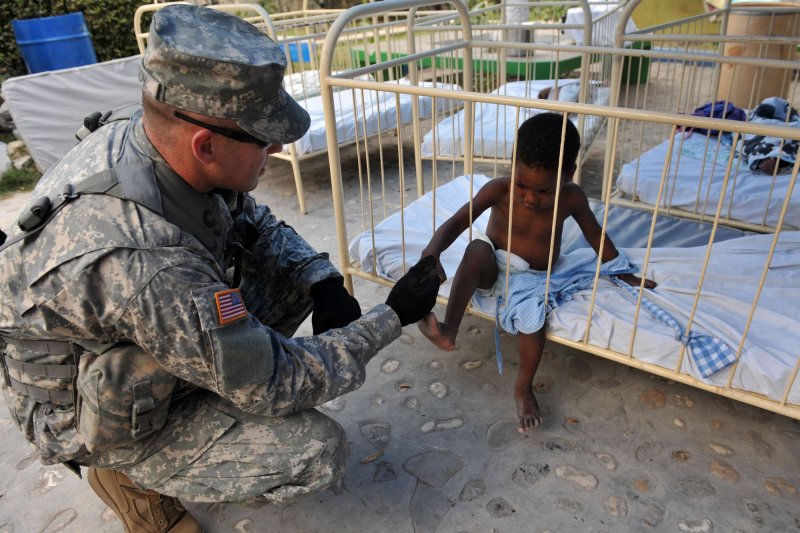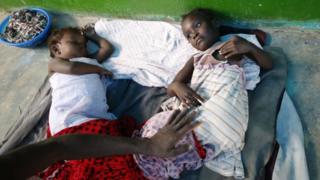It's just another night's work for this four-man team of "bayakou" - the Haitian waste cleaners who take to the streets at night doing a miserable, indispensable job that creates such social scorn that few admit they do it at all. "The hardest part is going into the pit. You have to get used to it," says crew boss Auguste Augustin as his shoeless team worked by candlelight, filling sacks with human waste to be loaded into a wheelbarrow and dumped before sunrise.
The pit latrine cleaners form the lowest ranks of a primitive sanitation system that is largely responsible for the fierce persistence of cholera in this country since it was introduced to the country's largest river in October 2010 by sewage from a base of U.N. peacekeepers. Haiti still relies mostly on crude methods of waste disposal that have crippled its ability to combat a water-borne illness that can cause diarrhea so severe that victims can die of dehydration in hours if they don't get treatment. It has sickened roughly 800,000 people and killed at least 9,500.

Dieusel Gerlin, a"bayakou", or waste cleaner, uses candles for illumination before descending into the pit of an outhouse, in Port-au-Prince, Haiti. Bayakou strip off their clothes, wrap themselves in rags and plug their nostrils with tobacco to hide the stench, before they squeeze themselves into the latrine pit to scoop buckets of human excrement with their bare hands. The Bayakou form the lowest ranks of a primitive sanitation system largely responsible for the fierce persistence of cholera in this country since it was introduced to the country’s largest river in October 2010 by sewage from a base of United Nations peacekeepers.
The U.N., which this month acknowledged not doing enough to help the country fight cholera while stopping short of an admission of responsibility for introducing it, has announced a new fundraising plan to battle the easily treatable disease. It seeks to raise $400 million from U.N. member states, with the first $200 million dedicated in large part to treating patients with care like oral rehydration fluids, while promoting improvements in hygiene by distributing supplies like chlorine and soap. Improving water, sanitation and health systems are also stated goals of this first phase.
But critics say the U.N. has failed to consistently focus on the long-term problem - how Haitians dispose of their waste and get their water. What's needed, critics say, are sustained investments in infrastructure that would prevent fecal matter from contaminating water supplies and continuing the cycle of disease. "The $200 million for cholera control is desperately needed to stop deaths from cholera, and must be followed by robust efforts to put in the clean water and sanitation that will fully eliminate the disease," said Beatrice Lindstrom, a lawyer with the nonprofit Institute for Justice and Democracy in Haiti.
MORE





 Reply With Quote
Reply With Quote








 Haiti cholera: UN chief apologises for first time over outbreak Thu, 01 Dec 2016 - Ban Ki-moon says he is "profoundly sorry" for the UN's role in a deadly cholera outbreak in Haiti.
Haiti cholera: UN chief apologises for first time over outbreak Thu, 01 Dec 2016 - Ban Ki-moon says he is "profoundly sorry" for the UN's role in a deadly cholera outbreak in Haiti.  Two Haitian girls are treated for cholera
Two Haitian girls are treated for cholera



